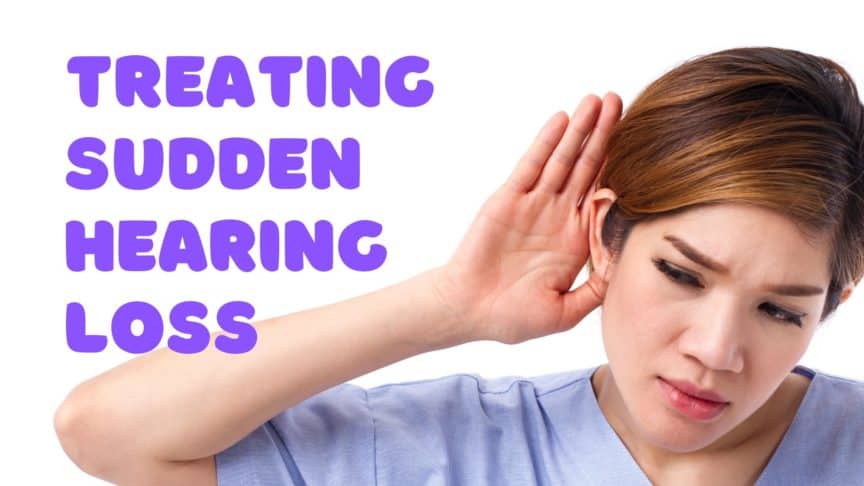Sudden hearing loss, also known as sudden sensorineural hearing loss (SSHL) or sudden deafness, is the rapid decline of hearing ability. It is characterized by a quick loss of hearing that typically impacts one ear and happens either all at once or over the course of a few days. This differs from other forms of hearing loss which usually occur gradually, over a longer period of time. Sudden hearing loss is commonly perceived to be a temporary symptom of common conditions like allergies, sinus infections, earwax etc. which causes people to delay seeking treatment. This can worsen the impairment and effectiveness of treatment options so it is incredibly important to intervene immediately.
Understanding Sudden Hearing Loss
It is generally estimated that at least 1 in 5,000 people experience sudden hearing loss annually. This number is likely higher because hearing loss is often underdiagnosed. Most people notice the drastic change in their hearing when they first wake up in the morning or when trying to use the impacted ear (using the phone, headphones etc.). A few key pieces of information to know includes:
- both men and women are affected equally
- people impacted are typically in their 40s and 50s
- most people recover, according to the Hearing Loss Association of America (HLAA):
- nearly 50% of people will recover some or all of their hearing naturally, usually within 1-2 weeks
- 85% of people who receive treatment will recover some of their hearing
It is useful to be aware of the symptoms of sudden hearing loss which should be treated as a medical emergency.
Causes & Symptoms
Unlike other types of hearing loss, the cause of sudden hearing loss is usually unknown. The HLAA estimates that only 10-15% of people who are diagnosed with sudden hearing loss have an identifiable cause. The most common causes include the following:
- bacterial or viral infections
- head/neck injuries
- autoimmune diseases (like rheumatoid arthritis)
- inner ear disorders like Meniere’s disease
- tumors
- neurological disorders (multiple sclerosis for example)
- ototoxic medications (including ibuprofen)
These health conditions can impact blood flow, anatomical features, nerve pathways etc. that are integral to how sound is absorbed and processed. The most common symptoms of sudden hearing loss include:
- dizziness
- tinnitus: a buzzing or ringing like noise in one or both ears
- a loud, pop like sound right before hearing is disrupted
- sense of fullness in the impacted ear
The onset of these symptoms is typically alarming and can significantly impact hearing capacity. It is crucial to be assessed as soon as these symptoms develop.
Diagnosis & Treatment
The first step in addressing sudden hearing loss is scheduling an appointment for a hearing test. Conducted by a hearing healthcare specialist, there are different types of hearing tests that can identify impairment. The most common test is known as pure tone audiometry which measures a person’s hearing threshold – the softest or least audible sound one can hear. This identifies the degree of hearing loss in decibels, the unit sound is measured in. According to the HLAA, sudden hearing loss is diagnosed when test results show hearing loss of at least 30 decibels in three connected frequencies (a measure of pitch— from high to low). Hearing loss of 30 decibels “would make conversational speech sound more like a whisper”. After diagnosing sudden hearing loss, the doctor may conduct additional tests to identify underlying causes. This could include blood, imaging, balance tests etc.
The most common treatment for sudden hearing loss is steroids, specifically corticosteroids. Corticosteroids reduce inflammation and are prescribed to treat a range of conditions (allergies, autoimmune disorders, asthma etc.). This steroid mimics cortisol which is a hormone naturally produced in the body and is necessary for various processes including metabolism, immune health, stress management etc. To treat sudden hearing loss, corticosteroids are commonly prescribed in pill form and are taken orally. An alternative to this method is intratympanic corticosteroid therapy which is becoming more common. This involves injecting the steroid behind the eardrum into the middle ear. Additional treatments may be used if underlying causes are identified through further testing (antibiotics to treat viral infections for example).
If you have been struggling to hear, contact us today! We provide comprehensive hearing tests and we’re here to help.

